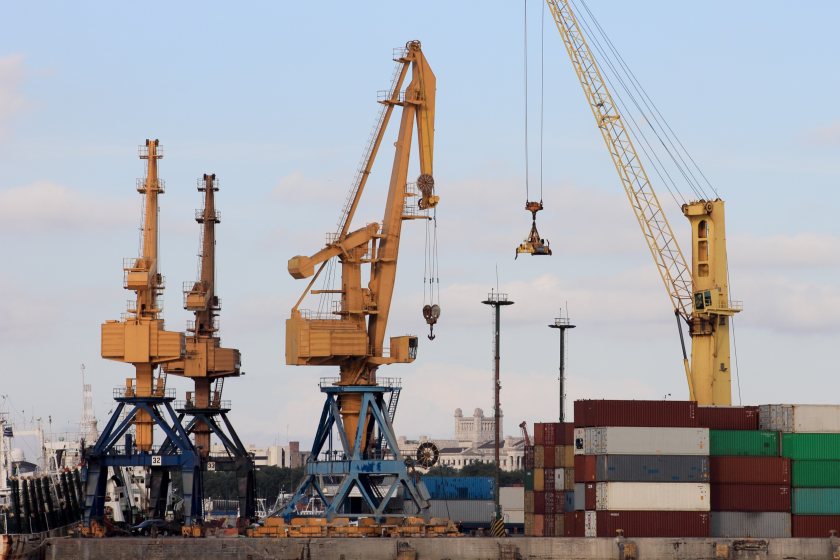
International delivery expert Parcelhero says the dockworkers strike in key US ports such as New York, Houston and Savannah is already causing disruption to US-UK trade and is calling for a rapid resolution to the dispute.
US dockworkers are striking at 36 ports on the US East Coast and the Gulf of Mexico, including the key ports of New York/New Jersey, Baltimore, Houston and Savannah.
The UK-US delivery specialist Parcelhero says the strike has had an immediate and significant impact on the flow of goods, from cars to electronics and whisky, between the USA and the UK.
David Jinks, Parcelhero’s Head of Consumer Research says: "The strike by US dockworkers has already disrupted the US-UK flow of a wide range of UK exports to the US, and American goods destined for UK importers.
"Some businesses have been forced to switch to services between US West Coast ports such as Long Beach and Los Angeles and the UK. That means shipments are taking longer and costing more.
"Container ship operators using East Coast ports are reportedly considering introducing a surcharge ranging from $1,500 to $3,780 a container if the strike drags on.
"While the strike will mainly impact larger shipments that are typically moved by container, smaller items such as parcels could be affected if there is a sudden, dramatic increase in demand for airfreight space.
"Some businesses may try to switch modes to ensure goods reach their destination on time, particularly those transporting perishable goods."
Products from vehicles and electronics to toys, clothing and whisky are being caught up in the industrial action.
The Distilled Spirits Council of the United States says three-quarters of imported alcohol typically flows through the affected ports, including scotch whisky from the UK, along with more than 40% of the American spirits sold overseas, including bourbon.
The West Coast port of Long Beach has already had its busiest-ever month as shipping companies and exporters hurriedly diverted sailings
The strike is being staged by the International Longshoremen's Association (ILA), a union which represents port workers across the East and Gulf Coasts.
It’s the first such strike since 1977 and could cost the US economy up to $5bn a day, according to the news agency Reuters and finance experts JPMorgan.
It will also have a significant financial impact on UK manufacturers and exporters shipping to the US, which is Britain’s largest single overseas market.
The strike is between the ILA and the United States Maritime Alliance (USMX), whose members include shipping giants Maersk and Hapag-Lloyd.
The ILA is demanding sizable wage increases for its members as well as protection from loss of jobs through automation.
The strike is affecting ports from Maine to Texas and believed to involve up to 45,000 workers. Around 60% of all US shipping container traffic could be caught up in the strike.
President Biden’s administration could technically intervene by imposing an 80-day cooling-off period under the Taft-Hartley Act, aimed at stopping threats to national security or safety.
This would force strikers back to work. However, the President is unwilling to use this legislation. Over the weekend he stated: "It's collective bargaining. I don't believe in Taft-Hartley.”
The US Transportation Secretary, Pete Buttigieg, was reportedly involved in negotiations last week which do not seem to have been successful.
Eleventh hour negotiations between the ILA and USMX also appeared to move the two sides a little closer on Monday, but did not succeed in averting the strike.
Many UK-US products rely on direct routes across the Atlantic and they will be heavily impacted. For example, depending on the UK port, it typically takes 12-15 days for a sailing between the UK and New York.
By contrast, a typical shipment between the UK and Los Angeles takes around 30-39 days and is likely to be more expensive.
Mr Jinks explained: "UK manufacturers and exporters could have their products stuck in US ports just as the run-up to the Christmas peak gets underway, while UK importers will be impacted by the delay of many US-manufactured products.
"Smaller items, such as parcels, are unlikely to be caught up in the strike directly. It’s only once a shipment weighs more than around 100-500kg that shipping by sea becomes potentially a cheaper option than airfreight.
"The concern is that demand for airfreight space could escalate rapidly, causing delays to parcel shipments and other airfreight users.
"UK businesses should also be aware of a potential impact of the restrictions on budget, low-urgency “surface mail”, the term used by freight companies to describe mail transported by land and sea.
"We do advise everyone sending items to the US to regularly check Parcelhero’s USA page, which gives full details of changes in prices, Customs advice and details about sending food etc."